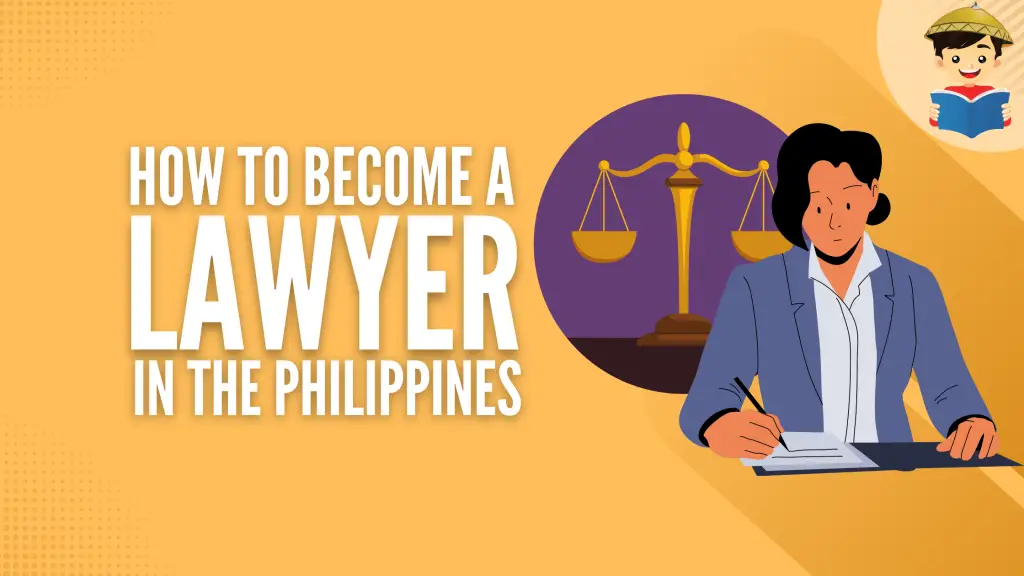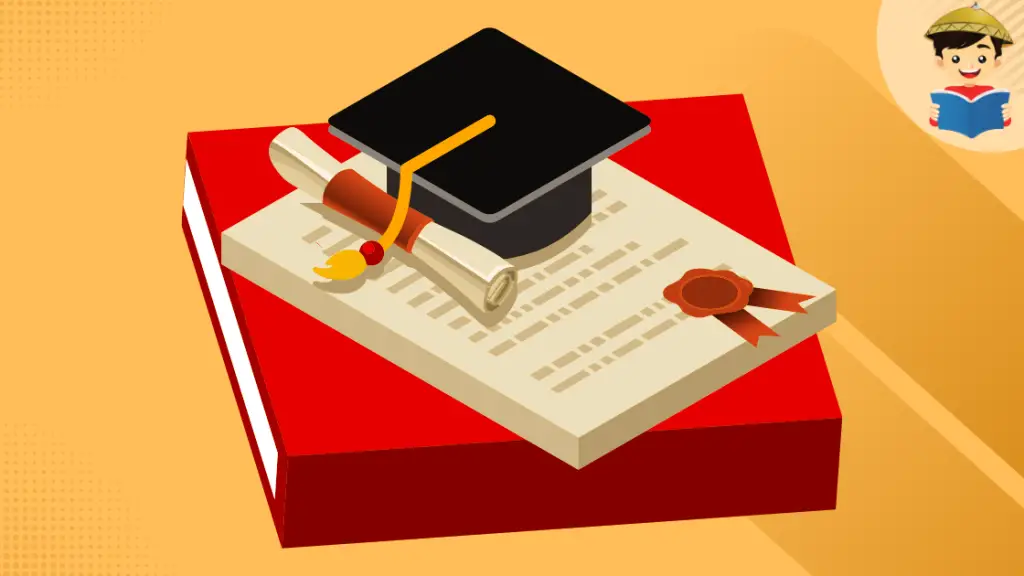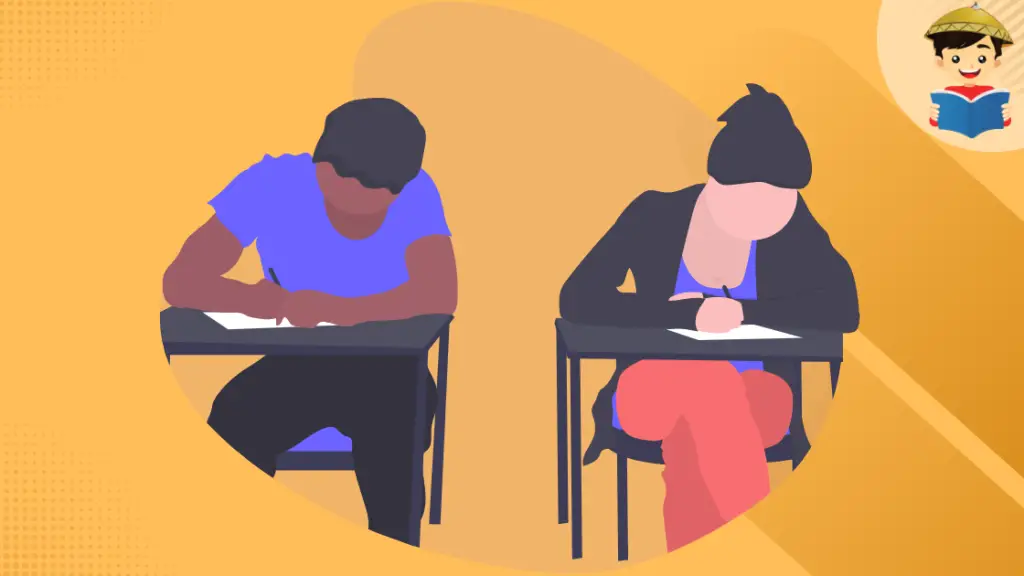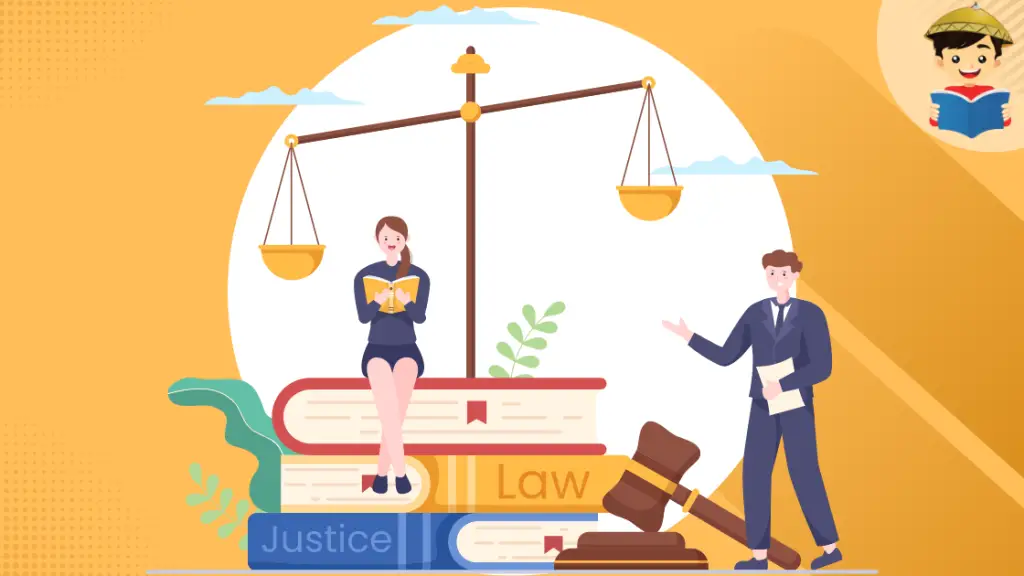How To Become a Lawyer in the Philippines: A Definitive Guide

Do you want to become a lawyer? You are certainly not alone.
Thousands of hopeful barristers regularly flock to the annual Bar Examinations that the Supreme Court of the Philippines offers every November. In 2018, a total of 8,158 candidates took the Bar Examinations, and out of these, only 22.07% successfully hurled the challenge5.
What makes the law career so lucrative that people are willing to spend four, five, or even six years studying to be one? What does a lawyer exactly do? What skills do prospective law students need to cultivate to survive law school?
Really, how does one become a lawyer?
This article will hopefully answer all of these questions and more.
Table of Contents
What Is a Lawyer?
You have watched Suits, Law and Order, and How to Get Away with Murder. You also have seen To Kill a Mockingbird, The Firm, and My Cousin Vinny on the big screen.
In the Philippines, you may have heard of famous attorneys such as revolutionary hero Apolinario Mabini, Supreme Court Chief Justice Jose Abad Santos, and human rights lawyer Jose Diokno.
But what, exactly, is a lawyer, and what does he do?
A lawyer, or attorney, is simply a person who is licensed to practice law.
The practice of law is varied. According to our Supreme Court, “the practice of law means any activity, in or out of court, which requires the application of the law, legal procedure, knowledge, training, and experience6.”
This means that a lawyer can be a professor, a writer, a politician, a CEO, a Data Protection Officer, or a notary public. Many more lawyers are working out of court rather than those practicing litigation in front of judges, as popularized on TV.
One professor from a prominent law school in Manila said that law practice is like a key that allows members of the Bar access to almost any office in the job market.
“Our life,” he said, “is a patchwork of laws, rules, and guidelines. From a person giving birth to the probate of your last will, we are constantly surrounded by statutes. People will always need a lawyer to understand this always-changing mess.”
How Many Years To Become a Lawyer in the Philippines?

To sum up, after Senior High School, it takes at least 8 – 9 years to complete college, finish law school, pass the bar exam, and officially become a lawyer in the Philippines.
Being a lawyer entails great competence, brilliance, and perseverance. Thus, someone aspiring to be called an “attorney” must endure many years of formal education.
To become a lawyer, you have to complete the following:
- Earn a bachelor’s degree (at least four years)
- Finish law school (at least four years)
- Pass the bar exam (at least one year)
Review each requirement above to identify how many years it takes to become a lawyer in the Philippines.
1. Earn a Bachelor’s Degree: At Least Four Years
After completing Senior High School, you must earn an undergraduate diploma before entering law school. It doesn’t matter what undergraduate course you’ll take as long as it is a four-year program.
2. Finish Law School: At Least Four Years
Once you’ve got a Bachelor’s degree, you may start studying law. According to Rule 1387, “Attorneys and Admission to Bar” of the Rules of Court, this will take four years.
Moreover, the rule mentioned above requires you to pass the following courses during your stay in law school:
- Civil law
- Commercial law
- Remedial law
- Political law
- Criminal law
- Public and private international law
- Labor and social legislation
- Medical jurisprudence
- Taxation
- Legal ethics
- Clinical Legal Education Program
However, if you drop any of these classes, file a Leave of Absence (LOA), or work part-time, it might take five to six years to finish law school.
Whether you want to study law immediately after finishing college is your prerogative. If you decide to work first before enrolling in a law school, you must also consider the years between your college graduation and law school enrollment.
After completing the study of law, you’ll be conferred the title “Juris Doctor (JD)8.” Although it already sounds prestigious, you are still one step away from being a lawyer. You still have to pass the bar examination.
3. Take and Pass the Bar Examination: At Least One Year
The bar exam is administered once annually. Whether you enroll in a review center or self-review for the bar, you’ll have about five to six months to prepare for it.
The results are released about six months after the exam. So, if you’re lucky enough to pass it on the first try, you can take your oath and sign the attorney’s role at least one year after you graduate from law school. Otherwise, you need to wait for another year to retake the bar.
How To Become a Lawyer in the Philippines: 6 Steps
1. Cultivate the Important Skills and Qualities Required To Study Law

Let’s say you’re in high school and want to become a lawyer. You want to cultivate skills to help you in law school and the Bar Examinations.
Here are the skills and mindset you need to have to survive law school:
a. You Need To Be Committed
Law school is not for the faint of heart.
The study of law is unlike your high school and college education. Most, if not all, law professors practice the Socratic Method in their teaching, meaning that the law students have to have read the assigned materials beforehand, and the professor will ask questions through recitation.
Don’t expect them to discuss the material in front of the class with a marker and visual aids.
The questions may range from the simple, like “What is property?” to the absurd, like “Let’s say that you are standing in a piece of cardboard in the middle of a puddle. A thief walked by and stole your wallet. Is the piece of cardboard considered a boat? Did the thief commit piracy?”
Practicals: Make sure that you are ready to study law! If you are not committed, gauge your interest by at least enrolling in the first year of law school. If it’s not for you, at least you have tried.
b. You Need To Learn How To Read and Read Fast
You will spend 90% of your time reading laws, cases, notes, books, and articles.
Our laws are codified in more than a thousand statutes, with most of these laws having children on their own by implementing rules and guidelines. Aside from these, we have a wealth of cases since 1901 that the Supreme Court has rendered decisions and resolutions.
You have your notes, your friend’s notes, or those made by your law school’s Bar Operations. You have your hardbound textbooks, each almost two-inch-thick. Finally, you have articles from law journals, newspapers, and online.
Practicals: Start reading NOW! It does not have to be a law book, but it should be more than reading your Facebook or Twitter feed. Make a habit of reading books, newspapers, and magazines.
c. You Need To Know Basic Sentence Construction
You must practice and review your English from recitations to quizzes and, finally, the Bar Examinations. Go over your grammar and basic style. In law school and even after passing the Bar Examinations, you need to readily and briefly state the facts, the issues, and the application of the law.
Practicals: Grab your old English textbook, practice online, or get Strunk and White’s “The Elements of Style.”
d. You Need a Proper Study Habit
Some geniuses can pass law school with minimum reading and a lopsided study schedule. Unfortunately, more likely than not, we are not these geniuses.
You need proper study habits. Like Stephen King and his writing, you need to treat the study of law as work. Work can be fun, but unless you are sick or otherwise predisposed, you need to work every day, work hard, and work for a long time.
Practicals: Set a time for study or reading and a different time for leisure. Do not confuse the two. Do not study while taking a break, but do not check Facebook while studying. Check the Pomodoro style of studying and make it work for you.
e. You Need To Practice Your Handwriting ASAP
As of this writing, 100% of the Bar Examinations are essay-type. This means no machine will check if your answer is correct and no scanner to which an intern will pass your exam sheet.
All booklets used during the Bar Examinations are read and checked by persons like you and me. If they cannot read your answer because of your handwriting, even if you are correct, you will lose points in an exam where one point means the difference between passing and failing.
Ensure that your handwriting is neat, follows the margins of the page, and, most importantly, is readable.
Practicals: Write! Take notes and prepare reviewers. Have a friend read your handwriting and get some critique.
2. Obtain a Bachelor’s Degree From a Recognized College or University

According to the Rules of the Court, you need to take a bachelor’s degree in arts or sciences with any of the following subjects as a major or field of concentration:
- Political science
- Logic
- English
- Spanish
- History
- Economics
However, the above rule does not mean that only those with a bachelor’s degree in Political Science, English, History, or Economics can enter law school or take the Bar Examinations.
The Rule is construed to mean by the legal profession that you took specific units in the subjects above. This means that a person with a bachelor’s degree in Nursing, Applied Mathematics, Chemistry, or Physics may enter law school as long as they have accumulated the required units in the above subjects.
Law schools have different criteria for accepting law students. For example, San Beda University – College of Law requires that students earn 18 units of English, 18 units of Social Sciences, and six units of Mathematics.
If you do not have the required units, you may be conditionally accepted but must satisfy the requirements before admission to second-year law. You may have to take summer law school classes to reach the required units.
3. Take the Philippine Law School Admission Test (PhiLSAT)

PhiLSAT, or the Philippine Law School Test, is an entrance exam separate and distinct from the entrance exam of the law school itself.
It is conducted by the Legal Education Board (LEB). It is a prerequisite for admission to the basic law courses leading to either a Bachelor of Laws or a Juris Doctor degree.
PhiLSAT is an aptitude exam – similar to an IQ exam – composed of four subjects: Communications and Language Proficiency, Critical Thinking, Verbal Reasoning, and Quantitative Reasoning.
Update: In a 108-page decision released on December 3, 20199, the Supreme Court has officially declared as unconstitutional the orders and memorandums of the Legal Education Board (LEB) that require aspiring law students to take up the Philippine Law School Admission Test (PhilSAT), making permanent the temporary restraining order it issued in March of the same year.
Although PhilSAT will no longer be mandatory, the court en banc, through Associate Justice Jose C. Reyes Jr., said in a statement that it’s still open to approving more “standardized and acceptable law admission examinations” that may be developed in the future.
4. Study Law for Four Years in a Recognized Law School

As explained earlier, the study of law usually incorporates the Socratic Method. The typical law student studies independently and already knows the material by the time the professor calls him to answer.
Therefore, your choice of law school is essential but not necessary in passing the Bar Examinations. If you have persistence, a good study habit, and courage, together with some luck, you will pass the Bar Examinations no matter what law school you come from.
5. Take and Pass the Bar Examinations

The Bar Examinations is a grueling four-day exam conducted by the Supreme Court.
It is generally given on all four Sundays every November in the City of Manila (notably the University of Sto. Tomas).
READ: How to Pass the Bar Exam in the Philippines: Tips from a Filipino Lawyer
a. Bar Exam Requirements
As per the Rules, you must be a Philippines resident, at least twenty-one years of age, and good moral character to qualify for the Bar Examinations.
According to the Office of the Bar Confidant of the Supreme Court10, applicants for the Bar Examinations must file:
- A verified (signed) and notarized petition, a form of which is available at the Office of the Bar Confidant;
- A copy of the applicant’s birth certificate;
- A copy of the marriage certificate for married female applicants;
- Two (2) testimonials of good moral character executed by a lawyer;
- The original or certified true copy of the applicant’s pre-law degree transcript;
- The original or certified true copy of the applicant’s law degree transcript;
- Certificate of no derogatory record;
- Certification by the school registrar executed under oath and noted by the Law Dean that the applicant graduated from a four (4) year law course and that his/her name is included in the LEB Certification;
- Three (3) copies of the latest un-retouched photos with name imprinted thereon; and
- A self-addressed stamped envelope.
There is a filing fee of PHP 3,750.00. Usually, your law school will help you accomplish the petition and its attachments. You need to consult with your school’s registrar.
b. Bar Exam Subjects
The Bar Exam is composed of eight subjects:
- Political and International Law
- Labor and Social Legislation
- Civil Law
- Taxation
- Mercantile Law
- Criminal Law
- Remedial Law
- Legal Ethics
c. Bar Exam Passing Rate
To pass, you need to obtain a general average of 75% in all subjects without falling below 50% in any subject. The Supreme Court, however, has the discretion to change this passing average.
6. Take Your Oath and Start Practicing Law

One doesn’t automatically become a lawyer by just passing the Bar Exams.
You still have to take your oath in a ceremony before the Supreme Court Justices and sign your name in the Roll of Attorneys afterward. Once you have signed your name and obtained your Roll Number, you may be officially called a lawyer.
Then, you can already practice law! There are, however, some continuing requirements that you have to accomplish as a member of the Philippine Bar in good standing:
- Pay your annual membership fee (PHP 2,000) with the Integrated Bar of the Philippines
Related: Resume Samples for Lawyers in the Philippines
Frequently Asked Questions
1. I’m in senior high school. Do I need to take a specific track to study law?
No, the law does not mandate any specific track as long as you get into a college that requires for its admission a four-year high school degree. However, it is recommended that you take a track specializing in reading, writing, and English comprehension. This will help you in the future when you are in law school.
2. What is the best pre-law course in the Philippines?
Political Science is currently the “in” ticket because these students have already encountered law subjects in their undergraduate curriculum and, more importantly, the Socratic Method in some of their subjects.
This does not mean, however, that other courses are naturally inferior. A bachelor’s degree in English, History, Sociology, Philosophy, or Literature is just as good as it does prepare students how to read well, logic, and proper reason.
On the other hand, it is sometimes suggested by law alumni that, in the end, all pre-bar degrees are equal in the study of law.
I agree with this sentiment. I believe your college choice is your ‘last’ piece of freedom before the shackles of law study bind you. Take any course that interests you – political science or a STEM course – and continue cultivating skills you will require in law school.
3. Can foreigners enter law school?
The Rules of the Court are clear. Every applicant for admission to the bar must be a citizen of the Philippines.
Although some law schools accept foreigners as law students and give them degrees in satisfactorily finishing the law course, these foreigners cannot take the Bar Examinations until they have acquired Filipino citizenship.
4. What are the best law schools in the Philippines?
It depends. If you are after quality education without the steep tuition fee, you may opt to enter the University of the Philippines. If you have the means and dreams of topping the Bar Examinations, you may enter the Ateneo de Manila University. On the other hand, if you are ready to face its strict attrition rate, you may enter San Beda College.
These three schools are commonly known as the “Top 3” as they regularly place topnotchers in the Bar Examinations and are the top three schools with the highest passing rates in the Philippines11.
Law schools in the provinces, however, are on the rise. The University of San Carlos in Cebu and Ateneo de Davao University have also routinely placed topnotchers with high passing rates in the Bar Examinations. For instance, four barristers – now lawyers – from the University of San Carlos topped the 2018 Bar Examinations.
5. Is Juris Doctor a lawyer? What makes it different from the Bachelor of Laws degree?
Substantially, both degrees are not unlike the other, allowing the holder to take the Bar Examinations and practice law.
The Juris Doctor degree, however, sometimes requires the student to prepare and defend a thesis. An apprenticeship is also required.
On December 1, 2018, to avoid confusion between the two programs, the Legal Education Board issued a memorandum discontinuing the term ‘Bachelor of Laws’ and instead adopted the ‘Juris Doctor’ nomenclature as the universal law degree12.
It should be noted, however, that Juris Doctor degrees are not equivalent to doctorate degrees13.
6. Do I need to enroll in a review school for the Bar Examinations?
It is not required but most recommended. Although certainly self-study and a dedicated study schedule are still the most important things for the Bar exams, there is no doubt that review schools will help you streamline your study. For more tips on passing the Bar exam, check out this article.
7. How much money do lawyers make?
Compensation greatly varies from lawyer to lawyer as each takes a career path relevant to his or her interests.
According to one news report14, junior lawyers have average earnings of PHP 27,033 per month.
However, if you work in the government, you may start with a salary grade of 19 (PHP 45,269 per month). The Public Attorney’s Office has a very competitive starting salary grade of 25 (PHP 95,083 monthly).
References
- News, A. (n.d.). Top 10 best performing law schools in the Philippines. Retrieved January 25, 2023, from https://news.abs-cbn.com/focus/v2/12/02/15/top-10-best-performing-law-schools-in-the-philippines
- Haro, S. C. (2018, December 24). LEB merges LI.B, JD Law Programs. Retrieved January 25, 2023, from https://varsitarian.net/news/20181215/leb-merges-li-b-jd-law-programs
- Rappler.com. (2019, January 12). CHED: Basic law degrees not equivalent to PhDs. Retrieved January 25, 2023, from https://www.rappler.com/nation/220820-ched-basic-law-degrees-not-equivalent-doctoral-degrees/
- Rodriguez, J. (2015, February 27). Who are the highest paid employees in Philippines? Retrieved January 25, 2023, from https://news.abs-cbn.com/business/02/26/15/who-are-highest-paid-employees-philippines
- Buan, L. (2019). Bar Exam results 2018: 22.07% passing rate. Retrieved from https://www.rappler.com/nation/229571-bar-exams-passing-rate-2018
- Diaz, R. (2019). G.R. No. 100113 September 3, 1991 – RENATO L. CAYETANO v. CHRISTIAN MONSOD, ET AL. : SEPTEMBER 1991 – PHILIPPINE SUPREME COURT JURISPRUDENCE – CHANROBLES VIRTUAL LAW LIBRARY. Retrieved from http://www.chanrobles.com/cralaw/1991septemberdecisions.php?id=665
- Supreme Court of the Philippines. (2019). A.M. No. 19-03-24-SC: Amendment of Rule 138 Section 5 In Relation to the Revision of Rule 138-A of the Rules of Court.
- Legal Education Board. (2018). LEB Memorandum Order No. 19, Series of 2018: Migration of the Basic Law Course to Juris Doctor. Retrieved from https://leb.gov.ph/wp-content/uploads/2020/08/LEBMO-19-Migration-of-the-Basic-Law-Course-to-Juris-Doctor.pdf
- Pulta, B. (2019). SC scraps with finality PhilSAT requirement for law students. Retrieved 20 August 2022, from https://www.pna.gov.ph/articles/1087808
- Office of the Bar Confidant of the Supreme Court. (2019). Requirements for the Bar Examinations for New Applicants [Ebook]. Retrieved from http://sc.judiciary.gov.ph/files/bar-2019/new-applicants.pdf
- News, A. (n.d.). Top 10 best performing law schools in the Philippines. Retrieved January 25, 2023, from https://news.abs-cbn.com/focus/v2/12/02/15/top-10-best-performing-law-schools-in-the-philippines
- Haro, S. C. (2018, December 24). LEB merges LI.B, JD Law Programs. Retrieved January 25, 2023, from https://varsitarian.net/news/20181215/leb-merges-li-b-jd-law-programs
- Rappler.com. (2019, January 12). CHED: Basic law degrees not equivalent to PhDs. Retrieved January 25, 2023, from https://www.rappler.com/nation/220820-ched-basic-law-degrees-not-equivalent-doctoral-degrees/
- Rodriguez, J. (2015, February 27). Who are the highest paid employees in Philippines? Retrieved January 25, 2023, from https://news.abs-cbn.com/business/02/26/15/who-are-highest-paid-employees-philippines
Written by Atty. Rhyne Token
Atty. Rhyne Token
He is a graduate of San Beda University - College of Law and presently working as an Attorney for the Legal Division of the National Privacy Commission. Part of his advocacy is to promote good mental health ethics in the workplace.
Copyright Notice
All materials contained on this site are protected by the Republic of the Philippines copyright law and may not be reproduced, distributed, transmitted, displayed, published, or broadcast without the prior written permission of filipiknow.net or in the case of third party materials, the owner of that content. You may not alter or remove any trademark, copyright, or other notice from copies of the content. Be warned that we have already reported and helped terminate several websites and YouTube channels for blatantly stealing our content. If you wish to use filipiknow.net content for commercial purposes, such as for content syndication, etc., please contact us at legal(at)filipiknow(dot)net